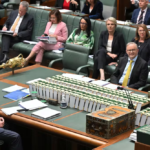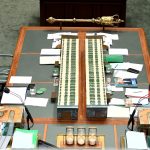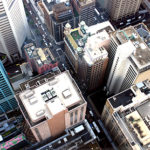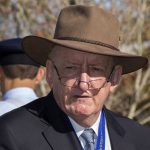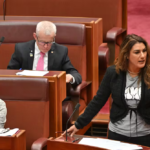Margaret Thatcher and her controversial legacy
Margaret Thatcher will be remembered across the world for many things. Dr. Oliver Villar shares her influence across the globe and the legacy which will endure.
While Margaret Thatcher was the “iron lady” and the “great reformer” for many Western countries, across the Third World, especially in Latin America, and even within the United Kingdom she is being remembered as a friend of big business and an enemy of the working class.
Thatcher, who was a strong advocate of neoclassical economists Friedrich August Hayek and Milton Friedman, was a friend of Chilean dictator General Augusto Pinochet and an ally of the racist Apartheid regime in South Africa. Free market fundamentalism, as documented by Canadian author Naomi Klein in her book the ‘Shock Doctrine,’ transformed many South American economies by combining US backed state-terrorism with the neo-liberal policies developed by Friedman’s Chicago School of Economics.
Thousands of leftists and democratic leaders were killed, tortured or disappeared in a process which became widely known by both supporters and opponents as the “Washington Consensus”.
In China, the same shock therapy was applied in Tiananmen Square in 1989, when workers protesting the pro-market policies of Chinese leader Deng Xiaoping were massacred.
Across the UK, unionists and activists have been protesting Thatcher’s legacy for the neo-liberal policies which they believe hurt unions and working people. The miners strike of 1984-85 which ended in defeat and with the Thatcher government being able to consolidate its fiscally conservative program is still very much in the hearts and minds of the British working class today.
In Ireland, Republicans remember Thatcher’s time as Prime Minister as draconian and militaristic which prolonged the ‘dirty war’ in the North of Ireland. A staunch advocate of Northern Ireland remaining part of the UK, Thatcher supported covert operations targeting not only members of the Irish Republican Army (IRA), but also civilians and activists.
As in Latin America, political opposition was met with a series of disappearances and reports of systematic torture and killings. In Argentina, news of Thatcher’s death has brought back many painful memories of ‘La Guerra de las Malvinas’ or the Falklands War in 1982, when Argentina’s military junta went to war with Thatcher over the disputed islands.
Argentina still views the UK’s grip on the islands as a product of a bygone era of British colonialism, where the process of decolonisation never completely materialised. From Argentina’s perspective, the South Atlantic archipelago was occupied by the British in 1933, who forcibly expelled the Argentinean population and authorities from the islands.
The British replaced the original Malvinas dwellers with British settlers and continued to use the islands as a strategic outpost. Apart from its rich oil and gas reserves, London insists that Buenos Aires should respect the islanders’ right to ‘self-determination.’ According to Wikileaks, the same right was not granted to Chagossians, the former inhabitants of the Chagos Islands.
In the 1970s, the entire population of the UK controlled islands were forcibly relocated to Mauritius and the Seychelles to make way for a US naval base. Wikileaks reports that the UK wanted to declare the entire archipelago a marine reserve to “assure that US interests were safeguarded” and so that “former inhabitants would find it difficult, if not impossible, to pursue their claim for resettlement on the islands”. Thatcher’s order to sink the Argentinean navy cruiser the Belgrano is considered a war crime in Argentina and by many Latin American nations.
The UK’s sending of its most advanced cruiser and Prince William, as well as reports of a deployed nuclear submarine is viewed as part of the Thatcher legacy.
Alongside President Ronald Reagan, Thatcher divided not only Britain but the world, one which is still coming to terms with a society she helped to build where free-market fundamentalism and conflict reigns supreme. In the words of former President of Venezuela Hugo Chavez, who died of cancer last month, “another world is still possible”.
Dr Oliver Villar is a Lecturer in Politics at Charles Sturt University. His work explores international relations, and his current research project investigates the growing great power rivalries of the twenty-first century.







